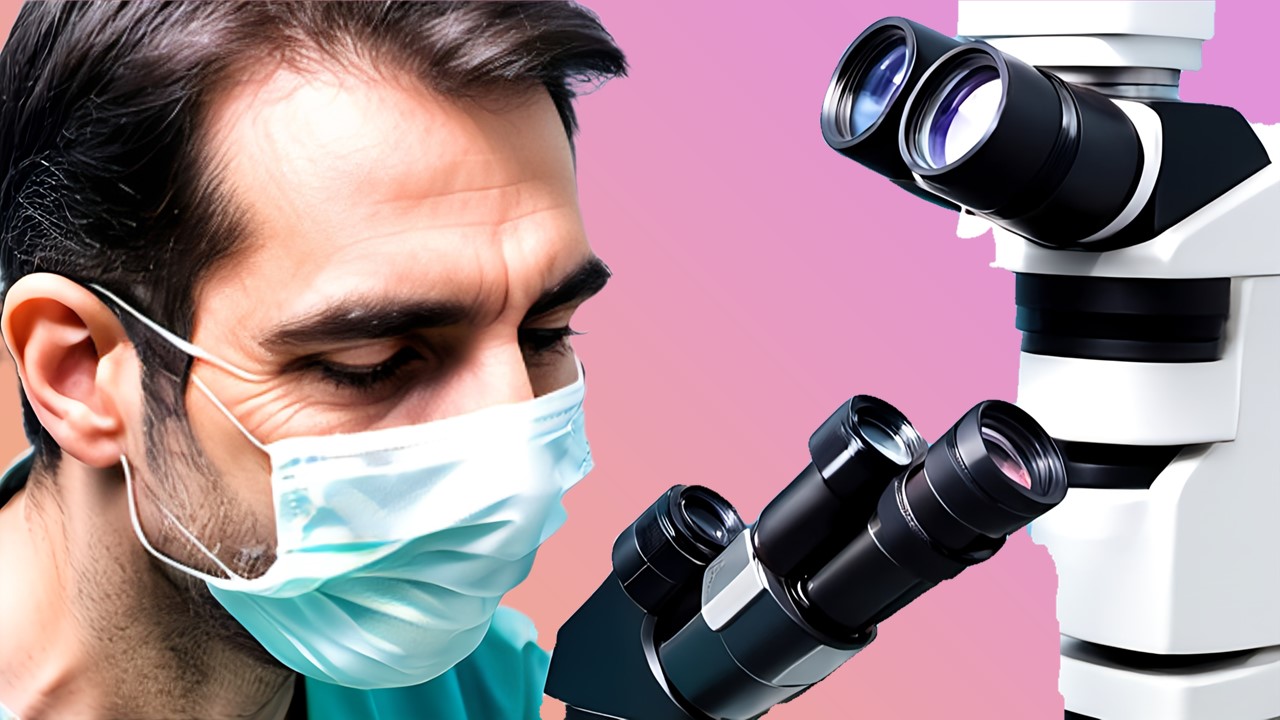
MSc Endodontics and Implantology
Course in Brief
This MSc is designed to address the growing need for advanced dental professionals. While primarily focused on Endodontics, it also covers key aspects of Implantology, providing a comprehensive education. The program features a holistic approach, integrating 3D imaging, occlusal diagnosis, and pulpal disease aetiology. Emphasizing clinical training, students gain hands-on experience treating patients, enhancing their diagnostic skills and confidence.
Course Overview
The MSc in Endodontics and Implantology not only equips students for clinical excellence but also empowers them to emerge as leaders in their field, and graduates will be equipped to meet the evolving demands of modern dentistry, thereby enhancing the quality of care provided to patients. This MSc is designed to cultivate a comprehensive understanding of the essential requirements necessary for delivering ethical, safe, and evidence-based endodontic treatment. Given the rapid advancements in this field, it has become crucial for dental professionals to remain informed about the latest innovations shaping clinical practice. This programme offers an in-depth exploration of these advancements, equipping students with practical knowledge and skills that are readily applicable in modern endodontic practice. A central goal of this MSc degree is to ensure that students achieve a thorough comprehension of contemporary endodontic practices.
The curriculum is structured to focus on methodologies that prioritise patient safety and treatment efficacy. By integrating evidence-based research into their education, students are trained to critically assess various treatment options, enabling them to make informed decisions that adhere to ethical standards in dentistry. In addition to theoretical understanding, the programme emphasises modern endodontic protocols that incorporate minimally invasive techniques, advanced imaging technologies, and innovative materials. These elements are significant as they enhance treatment outcomes and patient satisfaction. Furthermore, the integration of digitally driven technologies in the curriculum empowers students with hands-on experience using tools that streamline procedures and improve The Implantology component further expands the scope of practice for aspiring dental specialists. Students delve into the intersection of endodontics and implantology, gaining insights into managing complex cases that necessitate the collaboration of both disciplines. This comprehensive approach prepares graduates to establish a robust referral network, allowing them to create a unique practice focused on endodontics while simultaneously augmenting their skill set through implantology.
The programme has been carefully planned to ensure that modules provide a scaffolded approach to learning, with earlier modules underpinning later ones and the contents of one module complementing another taught in the academic year. For example, after having spent 90 hours in the 1st semester doing practical work in the Dental Manikins Dental Skills Laboratory simulating the clinical environment, you will enter the clinical training environment and begin working with patients. Apart from the well-established, in academia, written assessments (exams, reports, etc.), this Programme includes other more contemporary types of assessment that are also being used by other organisations, like the Royal College of Surgeons and the General Dental Council (GDC). The broad range of assessment types in the Programme aims at consolidating your learning. Some assessment type examples include Observed Structured Clinical Examinations (OSCEs), professional discussions.
Highlights
- Consolidation of safe clinical practice principles in accordance with the Safe Practitioner Framework recently published by the GDC.
- Comprehensive face-to-face teaching in the theory of clinical dentistry from a broad range of perspectives.
- Clinical training internship supervised by recognised clinicians in the field. As interns, you will be treating actual patients at our purpose-built and outreach centers.
- Contemporary types of assessment, mirroring those utilised by the General Dental Council(GDC) for the ORE examinations and the Royal College of Surgeons, e.g. OSCEs.
- Support in attaining MFDS.
- Small group learning opportunities and access to the very latest digital and Al modalities.
- Opportunities for personal and professional development in endodontics and implantology.
- Contribution to the research base of endodontics and implantology, encouraging research amongst practitioners.
- Reflective practice through the self-appraisal of one's own levels of competency.
- Gaina degree from the University of Greater Manchester, accredited by the British Government, whose degrees are recognised internationally.
Features
- Course materials are available online, allowing you to prepare work at home and make the most of the highly interactive in-class tuition.
- This course is based at the University of Greater Manchester's campus in the North West of England.
- We offer opportunities for you to undertake advanced research into a variety of subjects. Whenever possible, we'll support you to focus on projects that are directly linked to your personal interests and career development needs.
- If the outcomes and standard of your major research project prove appropriate, we will support you to reformat your project into an academic paper for submission to an academic journal, ready to seek publication.
- Opportunities for progression after completing this master's degree include PhD programmes.
- Preparation for the MFDS examination at the Royal College of Surgeons.
- By choosing to study with us, you'll have the chance to enjoy Bolton's many shops, restaurants, and leisure facilities. Manchester, one of the UK's most multicultural and lively cities, is less than 20 minutes away by train. Not forgetting, the North-West of England is renowned for its beautiful countryside, coastline, and heritage. This makes the University of Greater Manchester an ideal base from which to explore some of the best cultural and outdoor activities the UK offers.
Module
- Multidisciplinary Patient Assessment and Risk Management (DDT7014)
- Three-Dimensional Digital Imaging Techniques, Interpretation and Technology (DD7015)
- Occlusal Diagnosis and Treatment Planning (DDT7017)
- Aetiology and Diagnosis of Pulpal Disease (DDT7023)
- Multidisciplinary Care and Advanced Reflective Clinical Practice (DDT7016)
- Research Methodology (DDT7012)
- Dissertation (SPR7052)
Course Outline
C: Core / O: Optional

Module Outline
This module is designed to prepare students for practice and develops knowledge and understanding of legal and regulatory frameworks required by the GDC and other UK regulatory bodies. The module incorporates the learning outcomes for a Safe Practitioner. The various factors linked to safe practice, predictable outcomes, assessment, and treatment planning are comprehensively discussed, keeping a patient-centered approach.
Patient management, including risk management, is at focus during the delivery of this module. Fundamental principles for professionals in the health sector are analysed, namely obtaining valid patient consent, ethical principles, and integrity, among others. The module also focuses on developing self-reflective awareness, which is at the core of every health practitioner. Potential multi-factorial complications that arise in treatment are highlighted, enabling you to develop risk assessment strategies to avoid or minimise complications in multidisciplinary therapy. The practice of predominantly elective treatments is one of the most challenging, as it often entails in-depth knowledge of more than one speciality, each having its unique set of complications that need to be identified and effectively managed. As it is not possible to prevent all complications, this module also considers essential management strategies and the ethical issues of professional duty of candour and managing patient expectations. A considerable amount of scheduled teaching time will be spent in the dental manikin laboratory, which simulates the clinical environments you will be working in during the delivery of your training placement modules.
The content of this module is current as a large part of it is based on the new GDC framework “The Safe Practitioner" a framework of behaviours and outcomes for dental professional education. The learning is consolidated by applying taught in-class theory knowledge to the dental manikin environment. The different assessment components reinforce one another, as the first two are interlinked, being based on a role play, while they set the foundations to sit the written examination at the end of the module delivery.
Learning Outcomes
- On successful completion of this Module you will be expected to be able to:
- Critically assess complex clinical situations and challenges systematically and creatively
- Critically apply knowledge and understanding of patient assessment to treatment modalities to develop a treatment plan
- Critically evaluate clinical and environmental factors to create a comprehensive risk assessment
- Demonstrate integrity and adherence to the Safe Practitioner framework
- Demonstrate effectiveness in obtaining valid patient consent
Learning And Teaching Strategy
This module will be delivered through a combination of learning and teaching methods including: lectures, seminars, practical classes in the dental manikin laboratory and tutorials. Delivery will be supported by online discussions and activities posted on the VLE. You will be expected to attend all scheduled sessions and prepare for these in advance by undertaking relevant research and background reading.
Formative Assessment Strategy
Formative assessment is employed to support your learning on the module, allowing you to reflect on feedback on your progress from your tutors and peers. It takes a variety of forms, including group activities, discussions, and tutorial work and does not contribute to the final module mark.
Summative Assessment Strategy
- The summative assessment strategy is underpinned by three items of assessment. The first item is a group role play and script, which takes place early in the module delivery, while the second item is a viva based on the performance and content of the role play and script. The third item is a 120 minute written examination.
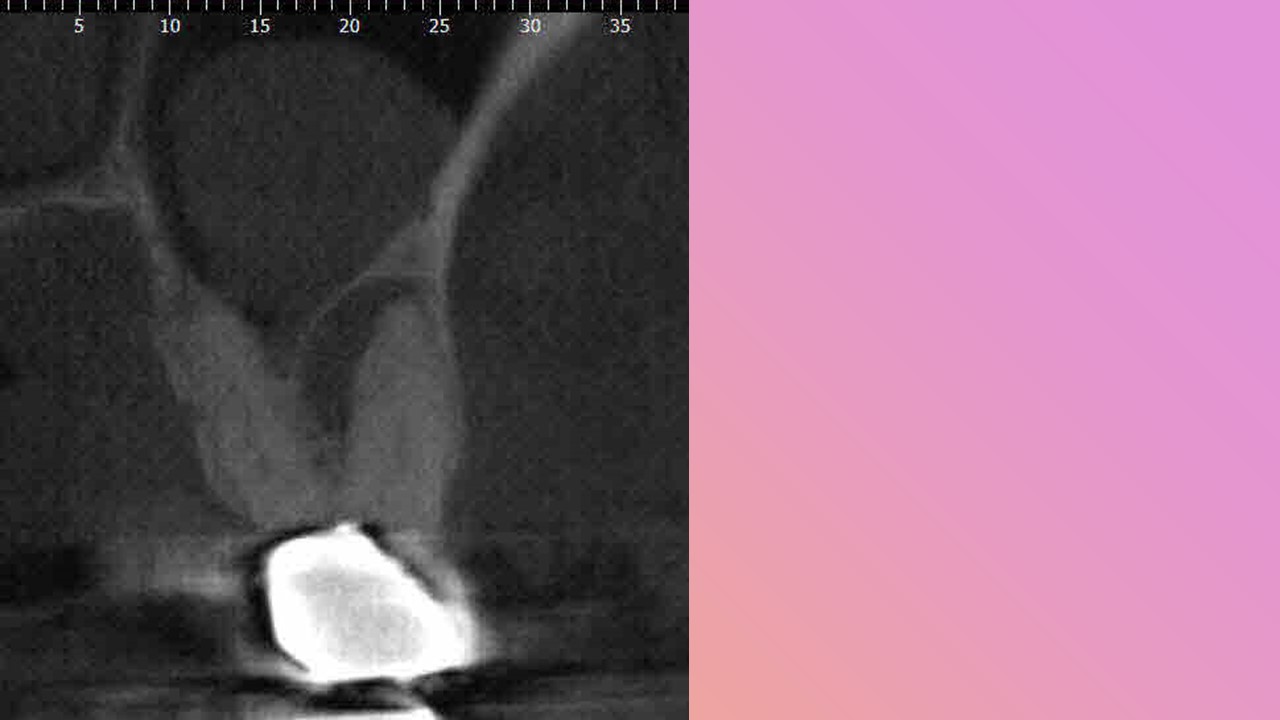
Module Outline
The module introduces Intra and Extra-oral scanners, and Cone Beam Computer Tomography (CBCT) through a series of practical training sessions on three-dimensional imaging systems and their underlying principles. This module will develop the skills of navigation, manipulation, and interpretation of three-dimensional images. Through this module, you will learn the fundamentals of scanning technologies, their advantages, and their limitations. You will also be taught about the operating and legal requirements applicable to the safe and effective use of radiographic equipment, plus health and safety issues related to ionizing radiation. The content of this module is current as it focuses on the latest developments in scanning technologies and treatment modalities that require that type of radiographic analysis and assessment. One of the two methods of assessment also follows the equivalent one utilised by the Royal College of Physicians and Surgeons intercollegiate examinations. The learning is consolidated by applying taught-in-class theory knowledge to the training placement environment. All module components reinforce one another efficiently, as the taught in-class theory sessions running in parallel with clinical training prepare the students appropriately for their OSCE assessment while also informing them of appropriate directions they are required to follow for the development of their written report. Indicative Content The technology of 3D scanning and computerised tomography Scanning and cone beam CT and spiral CT imaging technologies Scanning and CBCT as part of initial assessment, treatment planning, formulation of workflows and planned guided surgery Regulatory requirements and legal aspects of CBCT Results interpretation and report writing
Learning Outcomes
On successful completion of this module, you will be expected to be able to:
- Critically identify and implement the most appropriate scanning or combination of scanning protocols for the development of a treatment plan
- Critically apply knowledge and understanding of scanning, CBCT scanning and 3D imaging technologies
- Critically assess and manipulate 3D images and draw conclusions
- Synthesise knowledge to develop an effective analysis of radiographic findings
Learning And Teaching Strategy
This module will be delivered through a combination of learning and teaching methods, including lectures, seminars, training placement and tutorials. Delivery will be supported by online discussions and activities posted on the VLE. You will be expected to attend all scheduled sessions and prepare for these in advance by undertaking relevant research and background reading.
Formative Assessment Strategy
Formative assessment is employed to support your learning on the module, allowing you to reflect on feedback on your progress from your tutors and peers. It takes a variety of forms, including group activities, discussions, and tutorial work, and does not contribute to the final module mark.
Summative Assessment Strategy
The summative assessment strategy is underpinned by two items of assessment. The first item is an Objective structured clinical examination (OSCE) with 2 components, while the second item is a 2000-word report
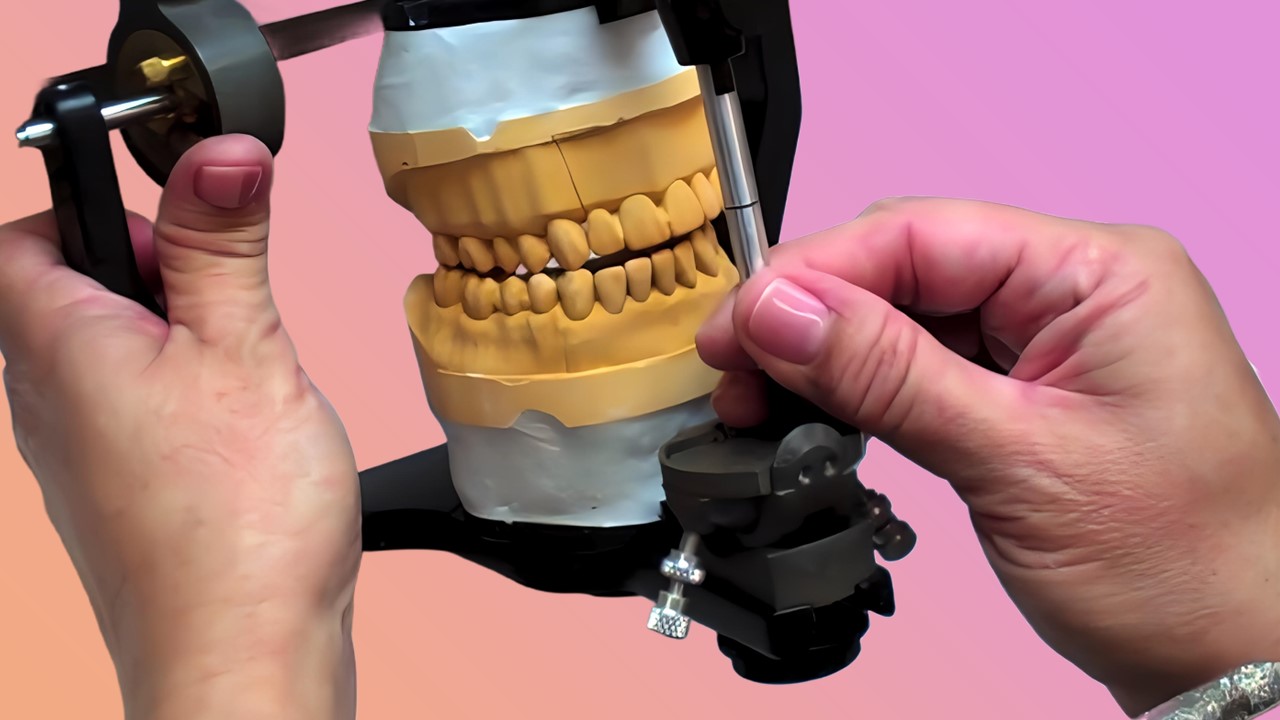
Module Outline
This module's aim is to present an evidence-based approach to the diagnosis and management of various developmental and occlusal disorders, linking current scientific concepts of basic developmental anatomy, physiology, biomechanics, and pathology of the jaws and temporomandibular joint with specific diagnostic and treatment protocols based on sound clinical data.
The module is underpinned by theory consideration during patient assessment so that effective decisions about appropriate occlusal therapies can be made, developing the corresponding treatment plans, and putting patients' interests first. Where lack of data or rapid changes in a particular discipline do not allow for evidence-based conclusions or recommendations, the module highlights the areas of agreement and disagreement to expose the deficiencies in the present knowledge base.
Finally, comprehensive risk assessments are also considered and developed according to the developed treatment plans, ensuring patients' safety. The content of this module is current as its methods of assessment follow the equivalent ones utilised by the Royal College of Physicians and Surgeons intercollegiate examinations. The learning is consolidated by applying taught in-class theory knowledge to the training placement environment. All module components reinforce one another efficiently, as the taught in-class theory sessions running in parallel with the training placement prepare the students appropriately for their OSCE assessments and written exams.
Indicative Content
- Occlusion and its significance to function and dental stability
- Terminologies, skeletal and occlusal classifications
- The anatomy of the temporomandibular joint and muscles of mastication
- Occlusal assessment and diagnosis of occlusal abnormalities
- The consequences of malocclusion on restorative stability, function, and oral health.
- The diagnosis and treatment of Temporomandibular Joint Syndrome and occlusal parafunction
- Management of malocclusions and dysfunction Temporomandibular Joint
- Disorder, its aetiology, skeletal and dento-alveolar factors
- Development of treatment plans informed by occlusal assessment, diagnostic data, prognosis, analysis of the known associated risks and shared decision-making
- Development of risk assessments associated with the finalised/agreed treatment plans.
Learning Outcomes
On successful completion of this Module, you will be expected to be able to Critically assess complex clinical situations and challenges in occlusal diagnosis and analysis systematically and creatively Critically apply knowledge and understanding of patient assessment to occlusal treatment modalities to develop a treatment plan. Critically evaluate clinical and environmental factors in occlusal treatment to create a comprehensive risk assessment. Critically evaluate the long-term durability of the proposed restorative solution with respect to occlusal factors. Learning And Teaching Strategy This module will be delivered through a combination of learning and teaching methods, including lectures, seminars, training placement and tutorials. Delivery will be supported by online discussions and activities posted on the VLE. You will be expected to attend all scheduled sessions and prepare for these in advance by undertaking relevant research and background reading.
Formative Assessment Strategy
Formative assessment is employed to support your learning on the module, allowing you to reflect on feedback on your progress from your tutors and peers. It takes a variety of forms, including group activities, discussions, and tutorial work and does not contribute to the final module mark.
Summative Assessment Strategy
The summative assessment strategy is underpinned by two items of assessment. The first item is a Professional Discussion - 1 component, while the second item is an Objective structured clinical examination (OSCE) -2 components.this
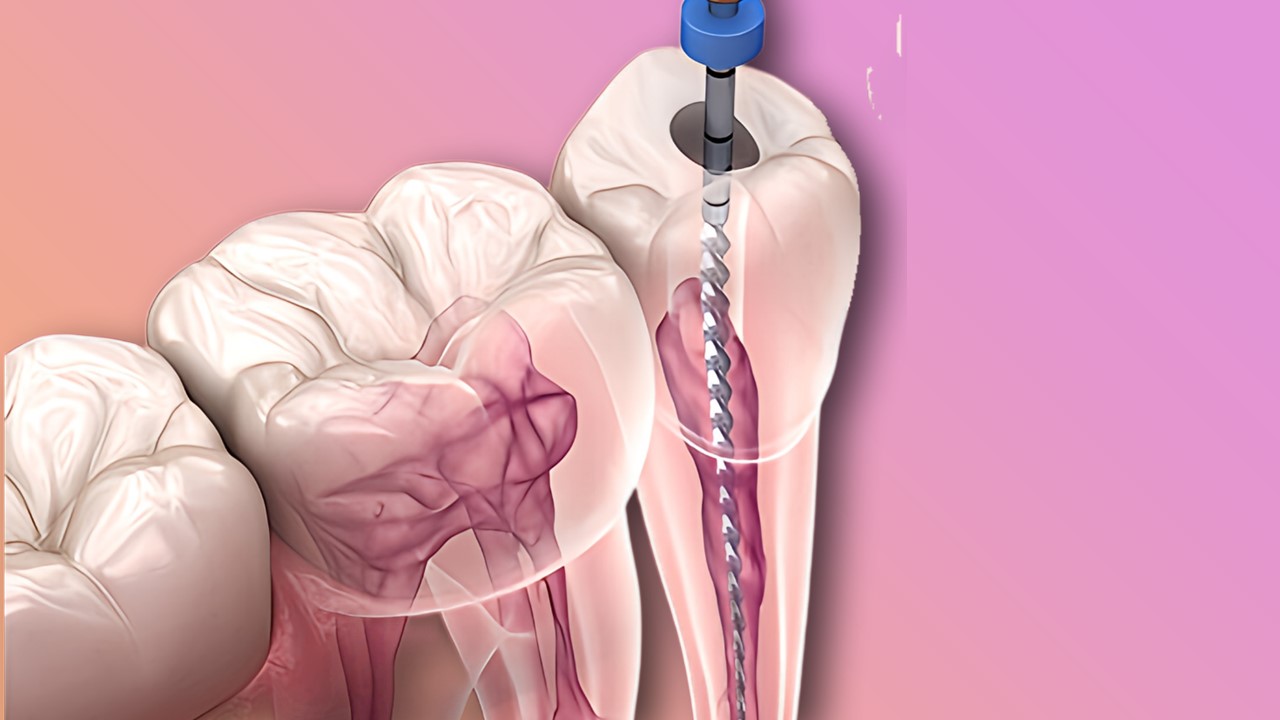
ModuleOutline
This module will allow you to critically reflect on the key causes of pulpal disease, its diagnosis, and appropriate treatment modalities. You will identify and critically appraise evidence and theory relating to the management of pulpal disease. The module is underpinned by theory consideration during patient assessment so that effective decisions about appropriate pulpal disease treatment modalities can be made, developing the corresponding treatment plans, putting patients’ interests first. You will also critically evaluate potential complications and synthesise risk assessment strategies to avoid or minimise complications. The content of this module is current as its methods of assessment follow the equivalent ones utilised by the Royal College of Physicians and Surgeons intercollegiate examinations.
The learning is consolidated by applying taught in-class theory knowledge to the training placement environment. All module components reinforce one another efficiently, as the taught in-class theory sessions running in parallel with the training placement prepare the students appropriately for their clinical practice viva assessment and written exams.
Indicative Content
- Introduction to pulpal diseases, treatment modalities, indications, biomaterials and maintenance regimes
- Assessment of pulpal health and prognosis
- Diagnosis of periapical pathologies and apical periodontitis
- Selection of appropriate treatment modalities for teeth suffering from pupal disease and apical periodontitis
- Assessment of the integrity of the root structure and root canal anatomy
- Implementation of remedial and retreatment of previously root-treated teeth
- Selection of definitive restorations for root-filled teeth as determined by the coronal condition and occlusal demands
Learning Outcomes
On successful completion of this module, you will be expected to be able to:
- Critically assess complex clinical situations and challenges in pulpal disease treatment systematically and creatively
- Critically apply knowledge and understanding of patient assessment to pulpal disease treatment modalities to develop a treatment plan
- Critically evaluate overall clinical and periodontal factors to determine the prognosis of the pulp and tooth
- Critically evaluate the long-term functionality of root-treated teeth and refer for implant replacement as indicated.
Learning And Teaching Strategy
This module will be delivered through a combination of learning and teaching methods, including lectures, seminars, training placement, and tutorials. Delivery will be supported by online discussions and activities posted on the VLE. You will be expected to attend all scheduled sessions and prepare for these in advance by undertaking relevant research and background reading.
Formative Assessment Strategy
Formative assessment is employed to support your learning on the module, allowing you to reflect on feedback on your progress from your tutors and peers. It takes a variety of forms including group activities, discussions and tutorial work and does not contribute to the final module mark.
Summative Assessment Strategy
The summative assessment strategy is underpinned by two items of assessment. The first item is a viva based on the presentation of selected clinical cases, while the second item is a 90-minute written examination.
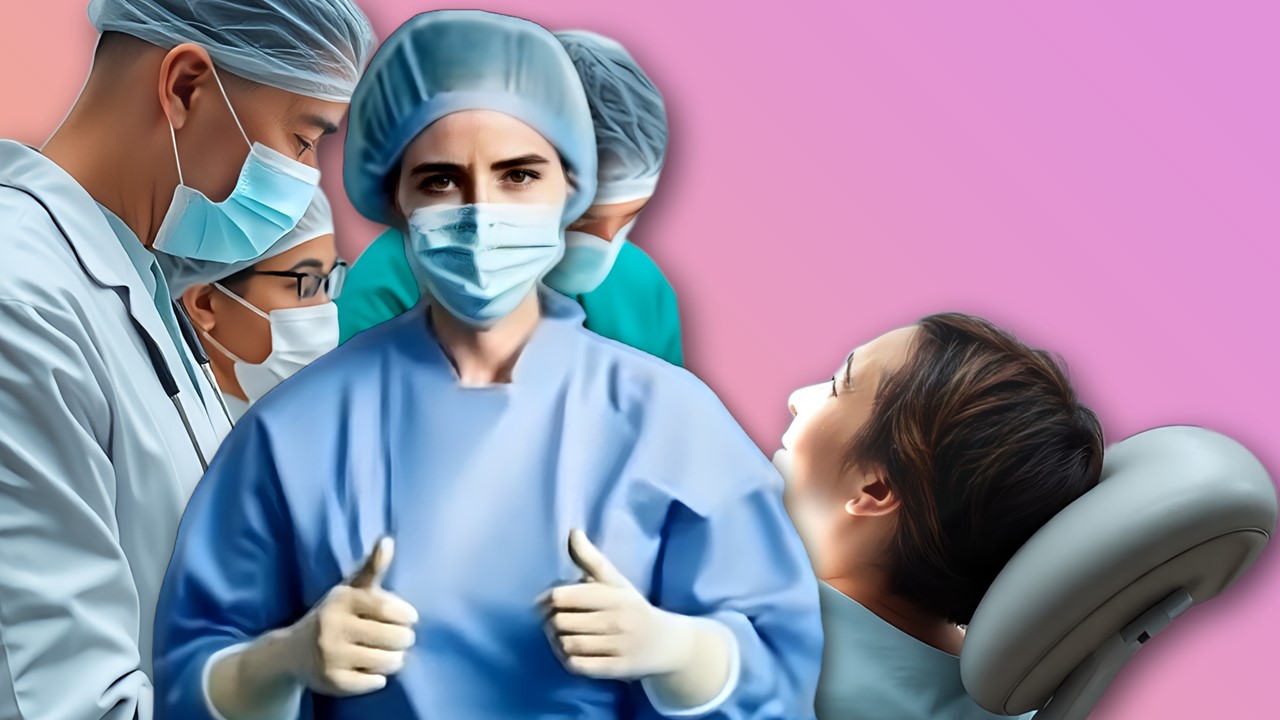
Module Outline
This module encourages you to critically reflect on your professional clinical and managerial practice to explore questions that are fundamental to your professional development and patient care. It requires you to critically evaluate the value of your existing knowledge base, identify any omissions and recognise and clarify the important connections between what you already know and what you intend to learn. It encourages information literacy, using contemporary and seminal sources to compile a critical evaluation of specialist practice and to allow you to develop strategies to enhance practice.
The content of this module is current as its focus is on the development of self-reflective skills, which are considered the most appropriate means of continuing professional development for healthcare professionals, in line with the requirements set by the General Dental Council. The learning is consolidated by reflecting on the skills and experience acquired during the training placement that took place since the start of the Programme. All module components reinforce one another efficiently, as the write-up of the logbook presenting the clinical cases informs the reflective written report.
Indicative Content
- The characteristics of critical reflective thinking
- Questioning professional assumptions, values and beliefs Reflective writing and critical thinking Finding resources to support your critical reflective writing
- Deepening critical reflective writing
- The identification or creation of a reflective question based on critical evaluation of practice and theory
- Revisiting professional experiences Justifying actions, clinical outcomes and treatment plans with strategies to enhance practice
- Exploring the impact of actions on professional practice
Learning Outcomes
- On successful completion of this this module, you will be expected to be able to
- Critically evaluate the treatment requirements from a multidisciplinary perspective
- Reflect on the various appropriate treatment options to identify patients that require multidisciplinary input and team approach to their treatment
- Present complex cases evidencing the development of detailed treatment plans, including timelines and sequencing, based on the critical appraisal of patient assessment outcomes.
- Critically evaluate your clinical practice and skills and formulate strategies for self-development
Learning And Teaching Strategy
This module will be delivered through a combination of learning and teaching methods including lectures, seminars, training placement and tutorials. Delivery will be supported by online discussions and activities posted on the VLE. You will be expected to attend all scheduled sessions and prepare for these in advance by undertaking relevant research and background reading.
Formative Assessment Strategy
Formative assessment is employed to support your learning on the module, allowing you to reflect on feedback on your progress from your tutors and peers. It takes a variety of forms, including group activities, discussions, and tutorial work, and does not contribute to the final module mark.
Summative Assessment Strategy
The summative assessment strategy is underpinned by two items of assessment. The first item is a portfolio of clinical cases, while the second item is a 2500-wordself-reflective report.
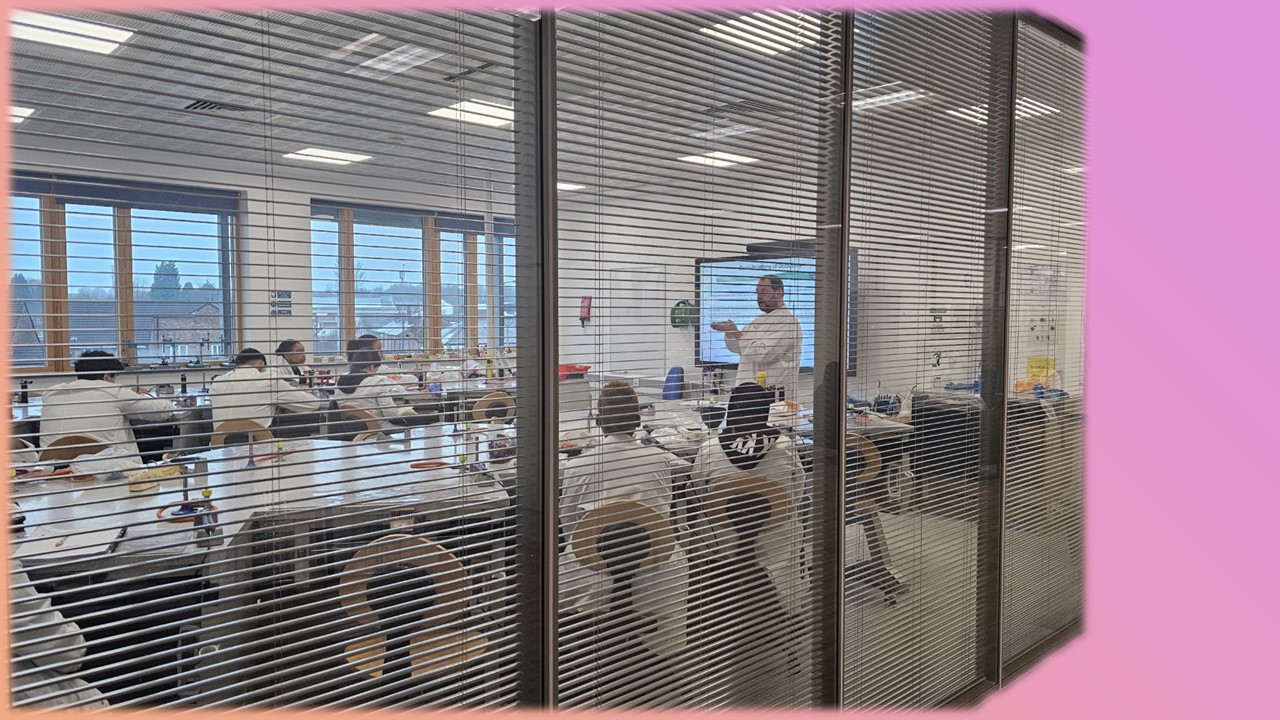
Module Outline
This module is designed to acquire the necessary research knowledge and skills required during your postgraduate studies, but also for your future career as a Researcher, Academic or Dental Professional. The taught lectures will enable you to gain a deep knowledge of statistical theory and models used in research. This knowledge will be applied during this module to work on a range of dental experimental project case studies. You will learn to design a research study, prepare specimens, and test them using the appropriate apparatus. You will gain knowledge on software tools for statistical analysis and presentation of results, while linked workshops will help you apply your knowledge.
A major part of this module is dedicated to the Research Proposal. You will learn how to develop and structure a Research Proposal, including how to develop research questions, aims, objectives and hypotheses, but also the corresponding research methodology. Your presentation skills will develop to enable you to confidently present and defend your research proposal.
Indicative Content
- Descriptive Statistics and Infographics
- Statistical Theory and Models: Hypothesis Testing / Student's T-Test /ANOVA (1-way 12-way) Normality Tests / Power Analysis
- Non-Parametric Tests
- Correlation and Regression Analysis
- The structure of the Research Proposal
- The literature review in the Research Proposal Development of research questions, aims, objectives and hypotheses
- Development of research methodology
- Development of the Research Proposal Dental experimental project case studies.
- Specimen preparation —Range of experimental testing Experimental testing data analysis — Statistical Analysis Software tools for statistical analysis and presentation of results
- Presentation Skills
- Development Critical analysis and engagement with ethical guidelines in relation to the research proposal
Learning Outcomes
On successful completion of this Module, you will be expected to be able to:
- Develop a research proposal with appropriate aims, objectives and hypotheses
- Critically review the literature for a research proposal
- Synthesise appropriate methodology in a research proposal
- Present and defend a Research Proposal
Learning And Teaching Strategy
Blended teaching for this module will be delivered through a combination of learning and teaching methods, including lectures, seminars, workshops and tutorials. You will be expected to attend all scheduled sessions and prepare for these in advance by undertaking relevant research and background reading. To complete the module successfully you must allocate a substantial amount of time for independent study and self-directed research, to steadily build your knowledge and complete, present and defend the Research Proposal.
Formative Assessment Strategy
Formative assessment is employed to support your learning on the module, allowing you to reflect on feedback on your progress from your tutors and peers. It takes a variety of forms, including group activities, discussions, and tutorial work, and does not contribute to the final module mark.
Summative Assessment Strategy
The summative assessment strategy is underpinned by two items of assessment. The first item is the submission of a 3,000-word Research Proposal. The second summative assessment is a 20-minute oral assessment during which the presentation and defense of the Research Proposal will take place.

Module Outline
This module aims to provide you with an opportunity to undertake an independent, substantial, and in-depth investigation on a research topic of particular interest. There is flexibility in the type of research, which can be experimental, survey-based, or literature-based. Further activities will develop your critical thinking, critical analysis and problem-solving skills, as well as your working independence.
You will develop your abilities to identify and set the correct research questions, aims, objectives and research hypotheses for a research study of interest. The knowledge acquired from the taught modules and your experiential learning will aid in developing your research methodology, collecting and analysing the information and/or data, as well as interpreting and justifying your results, leading to your conclusions. You will receive the required support and guidance from your supervisor and the module leader to complete your research and produce your Dissertation. If your research is of suitable quality, you will be invited to re-format your project into an academic paper suitable for publication in an academic journal.
Indicative Content
- Redevelopment /Finalisation of the Research Proposal
- Ethical Considerations
- Development of a comprehensive literature review
- Identifying and setting research questions, aims, objectives and research hypotheses
- Research Designing / Critical selection of appropriate research methodology
- Development of complex problem-solving skills
- Data management
- Critical analysis of the collected Information/Data
- Management of the writing and production of the
- Dissertation
- Presenting and defending research findings verbally
- Preparing for a Viva
Learning Outcomes
On successful completion of this Module, you will be expected to be able to:
- Plan and design an extended piece of work in critical research or professional enquiry to advance knowledge in your specialist area
- Critically evaluate literature from a range of sources and synthesise it into a conceptual framework to guide critical research or professional inquiry.
- Critically examine a range of data collection methods, exploring limitations to propose and justify an appropriate methodology for a research study.
- Critically analyse, interpret, summarise, and synthesise information and data/information from arange of primary and secondary sources and use these to construct and justify robust conclusions.
- Communicate complex academic or professional issues.
- Critically reflect on your project outcomes and personal development during the research process and defend ideas and recommendations.
Learning And Teaching Strategy
This module will be delivered through a combination of learning and teaching methods, including lectures, seminars, workshops, and tutorials. Delivery will be supported by online discussions and activities posted on the VLE. You will be expected to attend all scheduled sessions and prepare for these in advance by undertaking relevant research and background reading.
Formative Assessment Strategy
Formative assessment is employed to support student learning on the module, allowing you to reflect on feedback on your progress from your tutors and peers. It takes a variety of forms, including multiple-choice questionnaires or short quizzes designed to identify areas of knowledge and understanding requiring further attention. Formative assessment does not contribute to the final module mark.
Summative Assessment Strategy
The summative assessment strategy is underpinned by three items of assessment. The first item is the submission of a 10,000-wordDissertation. The second item is a 10-15 minute oral assessment. The third item is a Viva.
Apply for this Course
Apply NowRequest a Virtual Meeting
In relation to our course in 'MSc Endodontics and Implantology ' to discuss your learning requirements and our flexible fees.
Request NowAdmission Criteria
General Entry Requirements
Entry Requirements You are normally expected to have successfully completed an honours degree (or equivalent) in a relevant subject and have appropriate work experience. You may be required to attend an interview and/or provide a portfolio of work.
Additional Criteria
- The standard entry requirement for the course is Bachelor of Dental Surgery (BDS)
- If English is not your first language, you will need to complete a Secure English Language Test at IELTS 7.0 or equivalent with no band lessthan 6.5
- Current registration with the UK General Dental Council (GDC) or equivalent in another country



